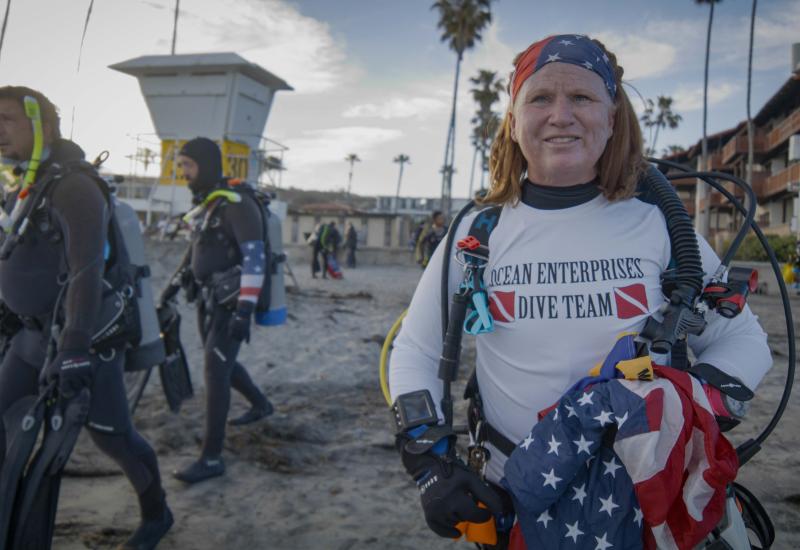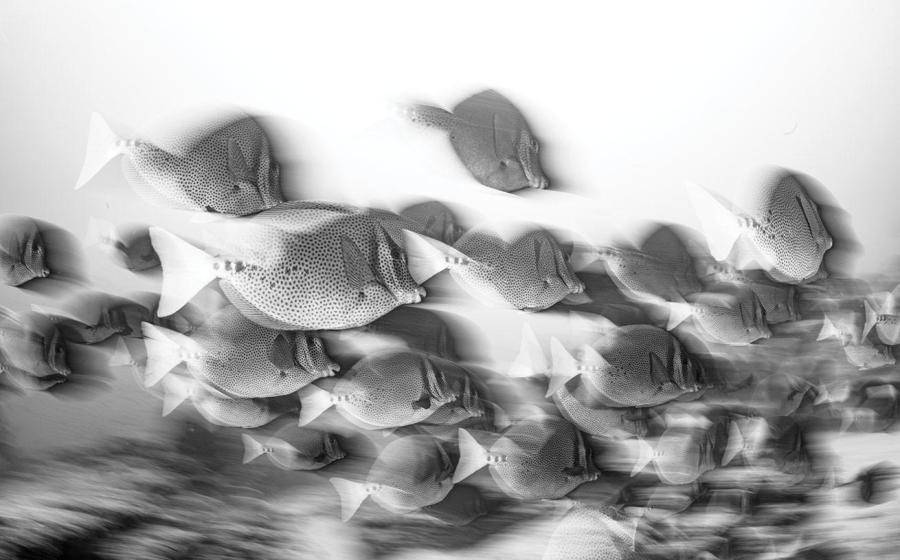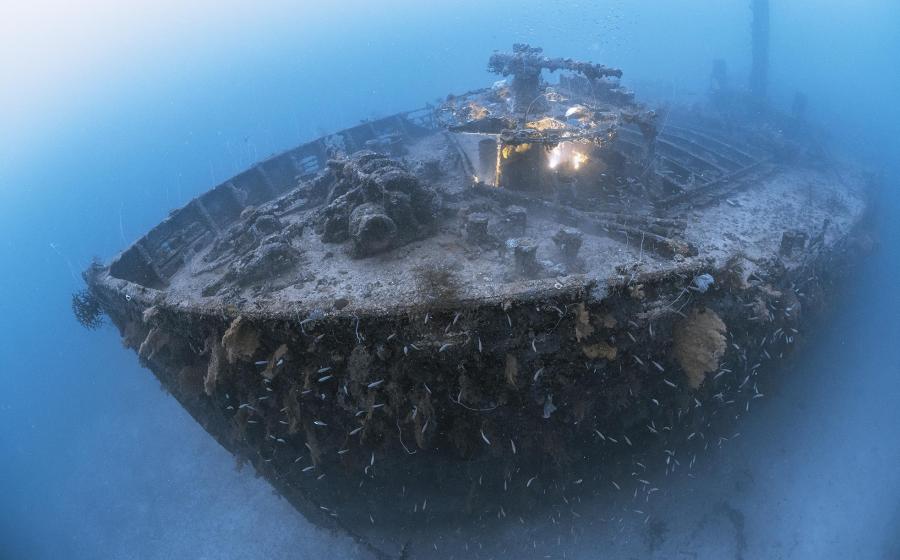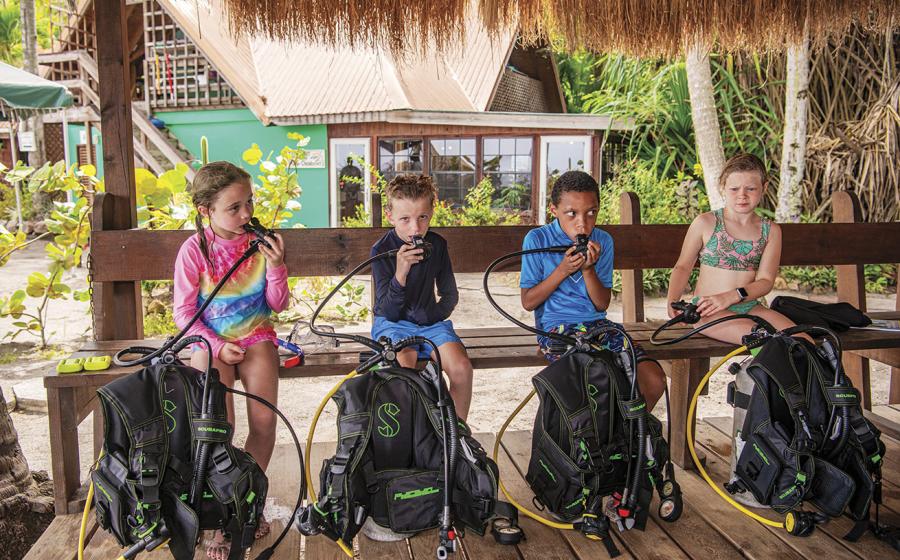Austin Gallagher Receives Sea Hero Honors for Shark Conservation Work
YEAR DIVE CERTIFIED: 2008
AGE WHEN CERTIFIED: 22
DIVE CERTIFICATION LEVEL: Advanced
WORDS TO LIVE BY: Carpe diem
Dr. Austin Gallagher has shaped global shark conservation for more than a decade. His novel 2011 study quantified that sharks are worth more to the Bahamian economy alive as an ecotourism draw than hunted for fins. The Bahamas became a shark sanctuary that same year, and now his nonprofit, Beneath the Waves, is using it to conduct the first long-term assessment of how marine protected areas affect shark populations.
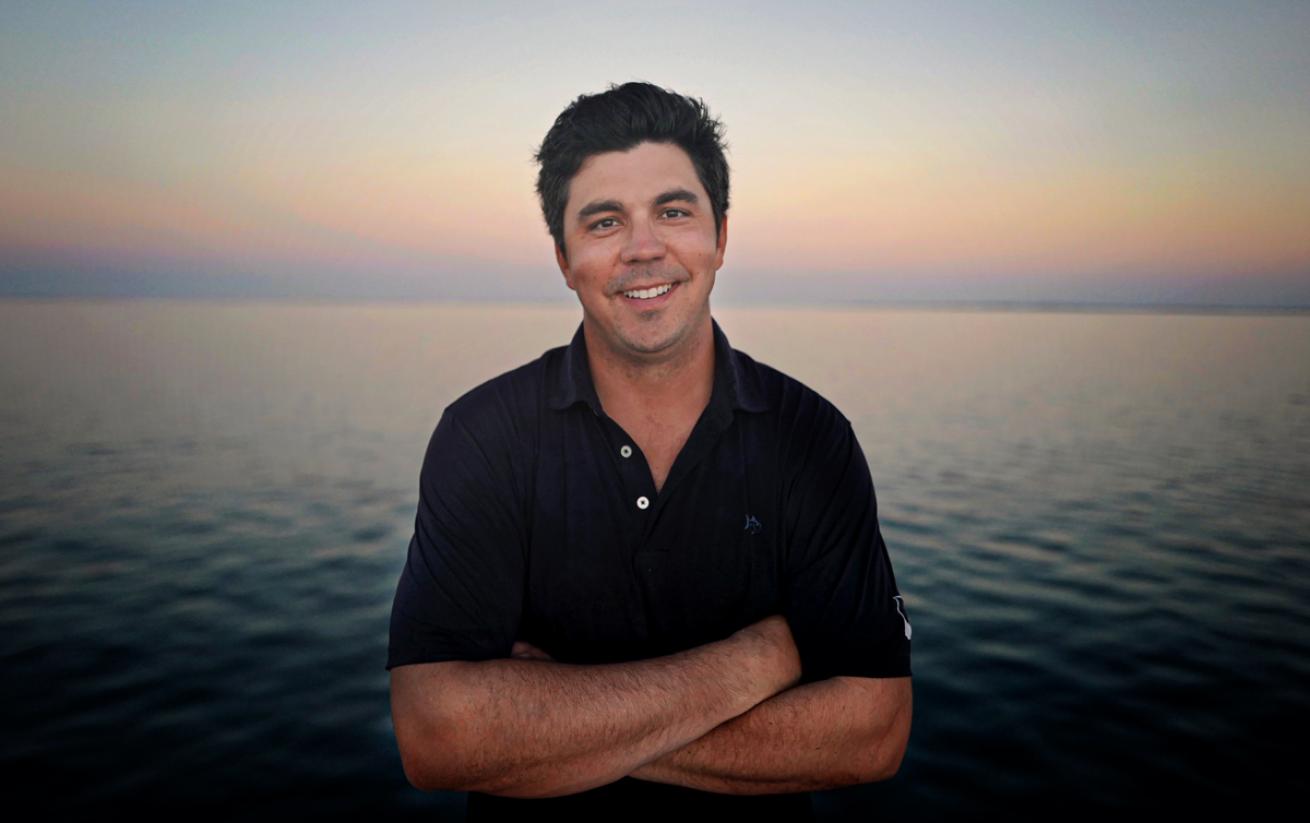
Hunter NolanAustin Gallagher
In between these projects, Gallagher mentors graduate students, has led nearly 30 expeditions, and published prolifically in academic journals. His findings have shaped global shark conservation wins, such as CITES shark listings. For Gallagher’s commitment to collaborative science that furthers global shark conservation, he is our July Sea Hero.
Q: Your research repeatedly impacts real-world conservation actions. How do you shape your work to make it have influence outside of academia?
A: I like to think I learned how to do science in academia and how to impact people in the nonprofit world. As head of a nonprofit, I am working in a framework designed to fill gaps in society. That’s what nongovernmental organizations do. If we had no issues, there would be less of a need for NGOs. At the end of the day conservation is about people, and any decisions made around protections and biodiversity will affect communities dependent on those resources. The most important element I try to bring to this work is empathy— without it, any influence or impact will not be long-lasting. The outcomes I try to drive through my work are always framed through this lens.
Q: What work is currently ongoing in your multiyear study to assess the impact of the Bahamas Shark Sanctuary?
A: This work is one of the first to evaluate how large marine protected areas benefit sharks. The Bahamas banned long-lining in 1993 and then fully protected sharks in 2011, resulting in a nearly 30-year natural experiment in how shark health and populations respond to negligible or no fishing pressure. Given the slow growth of sharks, we are now looking at a few generations of protection. The study involves a variety of electronic monitoring techniques to see how species like tiger and reef sharks spend their time throughout the archipelago. We believe this is the best opportunity to really see how sharks use these ecosystems, which will provide new information on how to sustain and strengthen the sanctuary.
Q: How do you hope your findings from this study will inform shark conservation policies around the world?
A: It has already been the jumping-off point for the creation of transboundary cooperation for shark conservation at the regional level. We just launched the Caribbean Shark Coalition, which is a platform to advance research and conservation for these animals in the Greater Caribbean. There is great regional interest in developing and advancing local efforts, yet there are rarely resources, training or a knowledge base off of which to build. Our findings should hopefully serve as a catalyst for these types of bottom-up initiatives, as well as evidence for proposed legislation to protect sharks in nearby nations. With my colleagues, I am currently working with 10 countries in the region to augment shark conservation policies such as protected areas, national commitments on biodiversity conservation and species action plans. We are interested to see how this will be absorbed and translated at the international level.
Q: Sharks are a highly migratory species, so they do not stay in one political jurisdiction for their entire lives. How do you think governments should approach working together to effectively protect this keystone species?
A: Sharks truly are international ambassadors. Transboundary conservation is an ambitious target, but we know now through tracking studies that, for some species, it is the only way to protect them. If one nation steps up and uses political will to protect a species, but that species is killed when it leaves the jurisdiction, it renders the conservation policies unsustainable in the long term. It is really about enabling that dialogue through cooperative working groups or coalitions. The discussion needs to start with sharks and the ecosystem services they provide that are shared by many countries.
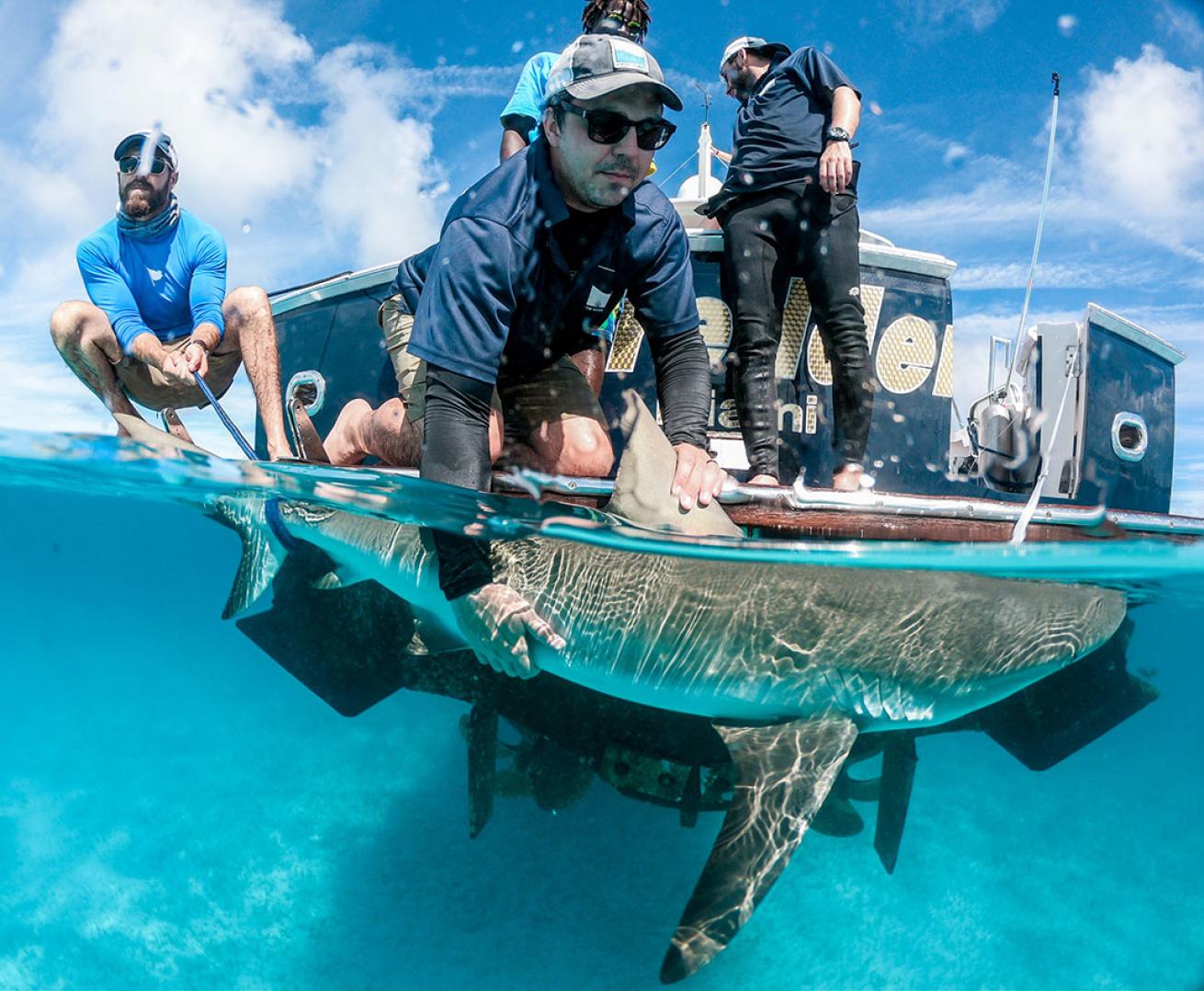
Sami Kattan for Beneath the WavesGallagher prepares a Caribbean reef shark for release after tagging it with a 10-year transmitter to track it throughout the Caribbean.
Q: Your work often relies extensively on collaboration—your current project has nearly a dozen partners! What has working with so many partners ultimately taught you that you think applies to other marine sustainability efforts outside of the Bahamas?
A: The very richness of humans and culture make conservation complex and challenging, but for any project to be successful, it must incorporate multiple voices from all arenas.
Q: What is the biggest hurdle to converting research findings into positive action? How do you overcome that?
A: Things take time—especially outcomes at the national level. It can be done, but things are susceptible to change at any time. Earlier in my career I struggled with the pace in which the professional world around me moved. To overcome this, I had to reframe how I evaluated impact over time. I also learned from others how to push and when to relax when it comes to long-term outcomes, policy change and capacity building.
Q: Another important aspect of your research is looking at how human activity outside of fishing impacts sharks. What are the major anthropogenic threats to sharks that people often overlook, and what can be done to mitigate them?
A: Climate change, coastal development and pollution are some of the other threats facing sharks, but they really pale in comparison to the magnitude of risk fishing imposes. As a result, these other threats are still understudied.
Q: What actions can our readers take to substantially contribute to shark conservation?
A: The best thing is to educate oneself through reputable, science-based organizations. Then people can become storytellers, ambassadors, teachers. Many people simply do not know that sharks are threatened and in need of conservation action. Eating and living more sustainably are always great as well. Longline fishing and bycatch is one of the greatest threats to sharks; people can and should try to eat lower on the food chain in order to reduce their impact on sharks and oceans.
Each Sea Hero featured in Scuba Diving receives a Seiko SRPF77 watch valued at $595. For our December issue, judges select a Sea Hero of the Year, who receives a $5,000 cash award from Seiko to further his or her work. Nominate a Sea Hero at /seaheroes.



